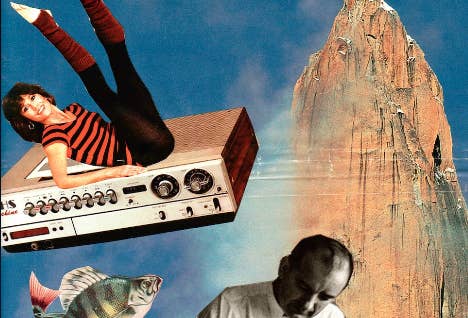
Adam Curtis is Britain’s greatest documentary filmmaker. He’s also one of the best artists this country has produced in recent times. While a lot of contemporary artists who became famous exhibiting in galleries wallowed in irony and commerce, Curtis has developed the most unique of niches, making polemical, subtle films that question the status quo from within the British Broadcasting Corporation. He would probably rather be talked of as a journalist than an artist, though.
VICE: So, as you see it, there is a basic failure in the way news has been reporting on the modern planet. Is there something inherently difficult about this?
Adam Curtis: Well, yes, what I’m talking about is three things: finance, computers and management theory. They shape people’s lives these days, yet they are absolutely unstoryfiable – you cannot turn them into a story. No one’s really found a way to describe this odd world we live in. I mean, I live in Holborn and every day I go to the BBC I see these waves of people going into offices and I know they’re going to spend their time in front of their computers being told, “If you like this then you’ll like that,” and being managed by all these systems. No one’s really found a way of describing that world to those people. And that’s what journalism should be doing. It really should.

VICE: Can you give me an example of how it’s failed?
There was this enormous financial crisis in 2008, which I’m sure we haven’t seen the end of. I don’t understand it. I don’t believe I’ve been told what has really happened because all I’ve heard are stories full of jargon about “collateralised obligations”. So I just feel lost. I’m lost in a world built from the jargon and terminology of the system of thinking that actually gave us the crisis in the first place, which is economics.

